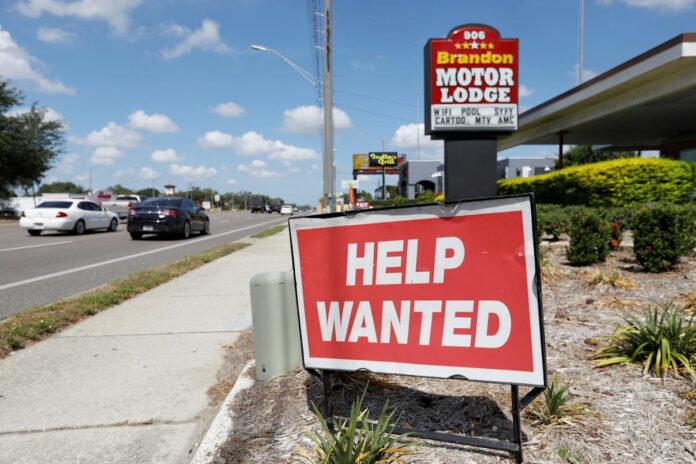New Jersey’s labor market is experiencing noticeable tremors as the first quarter of 2025 reveals a sharp uptick in layoffs—raising questions about the overall health of the Garden State’s economy. Federal data now confirms that layoffs in New Jersey have more than doubled compared to the same period in 2024, with over 3,600 jobs lost in just the first three months of this year.
This troubling development adds to a growing sense of unease among workers and economists alike, even as broader national indicators suggest a mixed outlook. Could this be a temporary adjustment—or are we seeing early signs of a deeper economic cooling?
📊 Layoffs Double Year-over-Year
According to recent figures from the U.S. Bureau of Labor Statistics (BLS), 28 New Jersey businesses announced layoffs impacting 3,618 workers during the first quarter of 2025. That’s more than double the 1,753 layoffs reported by 118 companies during the same timeframe last year.
The jump in layoffs is particularly striking when considering that far fewer companies were involved this year. This suggests that while the total number of companies announcing layoffs has decreased, the scale of individual layoffs has increased, pointing to larger restructuring events or industry-wide contractions.
🌐 What’s Driving the Decline?
Several economic and political headwinds are converging at once:
- Tariff Uncertainty: Amid renewed concerns about international trade policy, especially with the reintroduction of tariffs under President Donald Trump’s administration, businesses dependent on imported goods and global supply chains are bracing for tighter margins and reduced demand. This climate of uncertainty may be contributing to preemptive job cuts.
- Election-Year Jitters: With New Jersey’s gubernatorial race heating up, businesses may be holding off on hiring decisions or even scaling back operations as they wait to see how the political landscape evolves. Potential changes in taxation, regulation, or budget priorities could all affect the private sector’s outlook.
- Post-Pandemic Labor Adjustment: After the turbulence of the pandemic and the so-called “Great Resignation”, labor trends are beginning to normalize. The once-booming job-switching environment has cooled, and the number of people voluntarily leaving jobs has plateaued, according to federal statistics.
📉 Job Openings Also Show Signs of Slowing
The number of available job postings across New Jersey has also started to taper off. Following a peak in spring 2022, job openings have gradually declined—a trend mirrored nationally. This softening in demand for labor may reflect a more cautious approach from employers facing inflationary pressures and rising operational costs.
While the state’s unemployment rate remains relatively stable for now, the shrinking pool of job opportunities, combined with increased layoffs, could make it harder for displaced workers to find new positions quickly.
🏭 Which Industries Are Most Affected?
Though detailed breakdowns are still emerging, several sectors appear to be at the forefront of the current job cuts:
- Retail & Logistics: As consumer habits shift and e-commerce continues to reshape the retail landscape, some brick-and-mortar operations have been forced to downsize.
- Manufacturing: Particularly vulnerable to trade tensions and tariffs, manufacturing firms have started trimming their workforce to stay afloat.
- Technology & Finance: National tech layoffs have had ripple effects, and some New Jersey-based firms in the financial services and tech-adjacent industries are joining the trend.
💬 What It Means for Workers
For workers in New Jersey, the surge in layoffs is both a wake-up call and a reminder of the economy’s cyclical nature. While the state rebounded impressively in the post-COVID era, the current data hints at a transition from rapid recovery to cautious recalibration.
Economists are urging workers to sharpen their skills, stay connected to professional networks, and explore retraining opportunities, especially in industries that continue to show promise such as healthcare, renewable energy, and advanced manufacturing.
📌 Final Thoughts: Is a Slowdown Ahead?
While it may be premature to call this an economic downturn, the signs are worth watching. New Jersey’s economy, like much of the nation, is navigating a delicate balance between recovery and recession fears. The recent spike in layoffs may not yet signal a crisis, but it certainly suggests a softening in the state’s economic resilience.
As the year progresses—and as political and global economic events continue to unfold—businesses, workers, and policymakers alike will need to remain agile and attentive.












